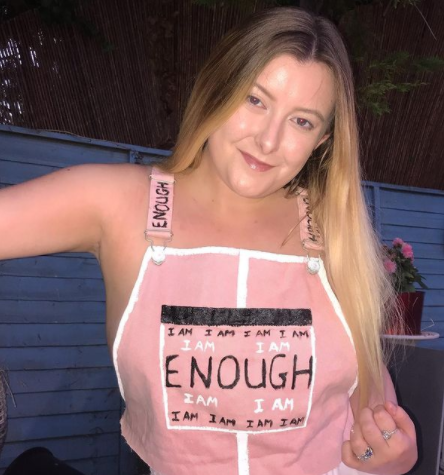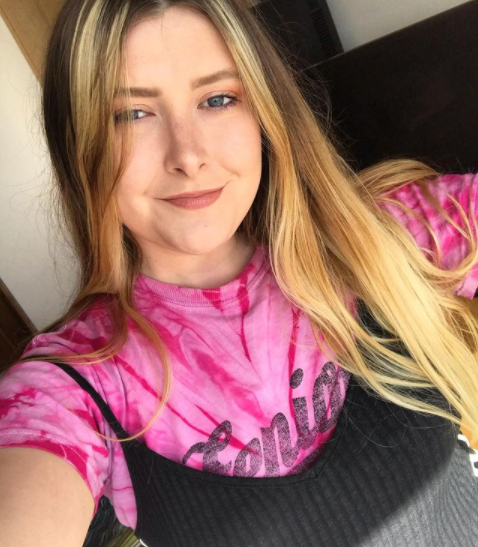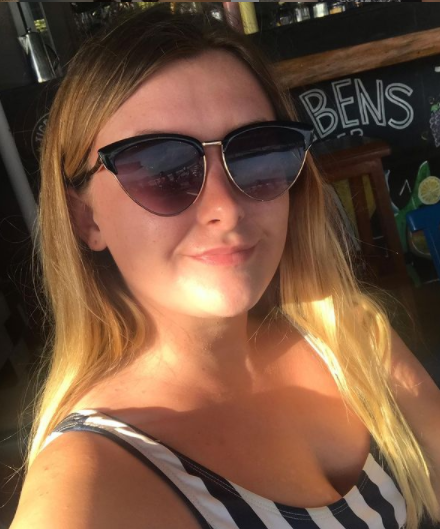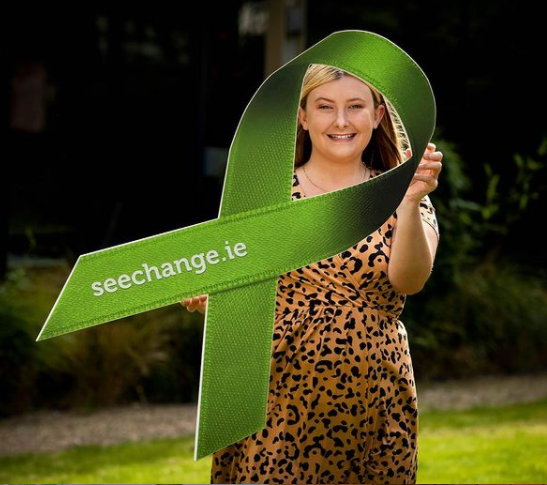
As many of you may know, Abigail has been a Shona Ambassador since the very start. We’ve seen her grow as a person and also succeed in many ways she never thought was possible. She had a very rough couple of years with her mental health but has overcome a lot and made us so proud. Now doing some incredible things with what she has learned from her experiences!
We came across a piece she wrote back in the day for Shona, and we feel it is still so relevant. So, read on to see what Abigail had to say a few years back.
* This article contains a trigger warning for self-harm, so please read at your own discretion. *
Stigmatized.
It’s taken me a long time to build the courage to write about this. And of course, I’m not quite sure where to start.
My name is Abigail McDonnell and I’m 19 years old. At this moment in my life, I am content, I am strong and I am excited about life, about my future. There was a time in my life where I believed that I didn’t deserve a future, that there was no point in me having a chance in life. I’m so glad to say that I no longer believe this, I deserve life, I deserve to live. It took me a long time to be this happy within myself but I’m ready to tell my story bit by bit in the hopes that I can help even one person out there.
At age 17, in my fifth year of secondary school, I was diagnosed with anxiety and severe depression. During this time in my life, I spent the majority of my time alone crying. I had no hope, I saw no point in doing anything and I self-harmed almost every day. Before this experience, I would never have even thought of self-harming but during this time I felt no pain while I hurt myself, it became almost routine for me. I really hated myself, I hated being in my skin, being trapped in my mind that I could never escape. I was so ashamed to be depressed and even telling my close friends was embarrassing.

It really baffled me that my mind, the thing that I basically had control over, was making me so sad, so anxious, and I couldn’t do anything about it. I missed around 60 days of fifth year after Christmas when my mental health reached its lowest point. I didn’t want to go into school because I was so afraid I would get upset in front of others and people would talk about it. When my classmates asked why I had been absent, I would lie and say that I was sick. In this current moment in time, physical sickness is given more respect than mental. I really struggled with this. I would make myself sick with anxiety about school, I felt I was trapped in classes and had to hold back tears daily if someone asked how I was. I would cry myself to sleep at night because of how sad I felt and hoped that I wouldn’t wake up the next morning. My sadness ached like no other feeling.
If mental health was talked about more in everyday life, my experience with it would’ve been so much less painful. I didn’t want to bother anyone with my sickness, I didn’t want to make anyone feel uncomfortable by talking about depression or anxiety. These things are seen as taboo. They are also not taken seriously. During my worst days some people told me ‘Stay Positive!’ or to ‘Just get out of bed!’. They didn’t understand how serious my illness was. I don’t blame them, how could they know? We don’t talk about these issues enough for people to understand how serious these issues are. 1 in 4 people suffer or will suffer from mental health problems. 1 in 4. Think about that. Think about your group of friends, according to the statistics how many of them should have mental health problems? It frustrates me so much that should a huge problem is constantly and shamelessly pushed under the carpet.
People don’t feel ashamed when they have a broken leg, they don’t feel ashamed when they have a cold, why should people feel ashamed when they suffer from a mental health illness? Mental health problems do not define the person they affect, they are simply an illness, an illness that can be helped and often cured with treatment suited to each person. I didn’t think I would make it to my 18th birthday, I genuinely thought that ending my life was inevitable and for a while, I accepted that. I am so glad that I fought this battle, I had the courage to talk and the strength to carry on. It took me so long to find this strength but with the constant help and support from my family, I got through. For me, I found my strength by attending cognitive behavioral therapy. My therapist helped me find the logic behind my depression and anxiety and gave me the confidence to fight against it. I learned things about myself I never would have otherwise.

I was lucky. I had a family who didn’t stigmatize my illness. I have a family who I know, no matter what will always be there for me and I know for a fact that I would not be here without them. I would spend hours crying to my mam while she hugged me and reassured me, she never once judged what I said and was truly my rock throughout it all, and in fact, still is. My sister, even though at first found it hard to understand, would make me laugh through my tears and never questioned why I was sad or anxious, she was there for me always. My Dad was so supportive, always asking how I was and telling me how well I was doing, he would tell me how proud he was of me and continues to do so every day. I truly love them all, I am so blessed to have them and I am forever grateful for that. Others out there aren’t so lucky. There are so many people out there who are afraid to talk, afraid to ask for help. That breaks my heart. We need to talk about mental health, we need to normalize talking about mental health because it will help. It will save lives and help people get the support that they need.
I still have bad days, of course, I do. But I know I can get through them.
I have recently become an Ambassador for See Change. See Change is an organisation that works to reduce the stigma surrounding mental health problems. I am so proud to be representing them and telling my story to encourage others to start their conversation. See Change have organised Green Ribbon Month for mental health. Try start the conversation about mental health. Simply asking someone how they are can help. It’s okay not to be okay and we as a country need to fully understand this, and we need to be there for each other in hard times, by talking, by lending a shoulder to cry on, or simply by listening.

Thank you for reading,
Abigail
X
As you can see, Abigail is a very wise young woman. She has also continued to spread awareness and break the stigma associated with mental health. She now hosts a podcast for See Change called “See Change Sessions with Alittlegail” and you can listen here.
Not only that, she has recently become a director of an organisation she founded with her Mum, called “Doing The Best We Can”. They provide information & support to parents/guardians & those indirectly affected by mental health difficulties. You can follow their journey below on their Instagram.
View this post on Instagram
Or, you can follow Abigail’s own journey below on her Instagram.
View this post on Instagram
If you have a story you would like to share, just pop us an email at [email protected]


